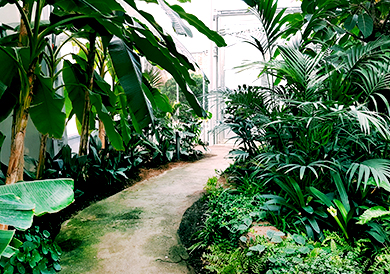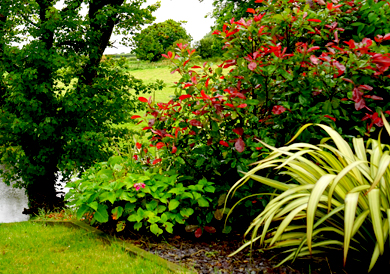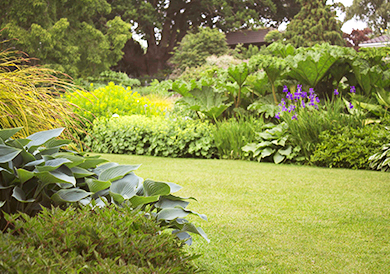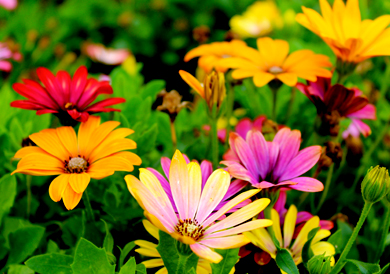CULTURAL SILENCE AND WOUNDED SOULS: BLACK MEN SPEAK ABOUT MENTAL HEALTH
EDITED BY MARK TUGGLE
FOREWORD BY CLEO MANAGO
“There is a vaccine for the covid-19 virus, but there is no vaccine for mental health. so as a nation, as community leaders, as public health leaders, we need to think about how we provide the support and the resources and create the spaces to help people deal with the trauma, the emotional, physical symptoms – anxiety, helplessness, nausea, headaches – that they may be struggling with.” – david r. williams (how unjust police killings damage the mental health of black americans, 2018).
america has never been a safe place for a black man to express his true feelings while living on stolen land. in fact, the desire for enslaved africans to escape colonial plantations – which in some cities are now golf courses – was described as a mental illness, drapetomania, by samuel a. cartwright, a physician who joined the confederate states of america in the mid-1800s.
cartwright said the slaves should be kept in a submissive state and treated like children with “care, kindness, attention and humanity to prevent and cure them from running away.” if they became dissatisfied with their “condition” he felt they should be whipped as a prevention from running away. cartwright further justified his racist theories by relying on christian scripture.
the states are united in white male genealogy/generational patriarchy, power and privilege. as such, black men endured centuries of brutality, domination, imperialism, lynching, murder, oppression, rape and violence. anti-black misandry, not baseball, is america’s favorite pastime.
dr. tommy j. curry says, “black males have been characterized as violent, misogynist, predatory rapists by gender theorists dating back to mid-nineteenth century ethnologists to contemporary intersectional feminists. these caricatures of black men and boys are not rooted in any actual studies or empirical findings, but the stereotypes found throughout various racist social scientific literatures that held black males to be effeminate while nonetheless hyper masculine and delinquent.” (misandric mischaracterizations of black males, 2018).
from the auction block to tiktok, black buck to ed buck, 1619 to covid-19, the middle passage to a rites of passage, slave patrols to police brutality, george washington to george floyd, the revolutionary war to the revolution will not be televised, the great migration to mass incarceration, black men, through grace and mercy, are still here, but. . .
what is a man?
who can define manhood?
when, if ever, did we become men in the us?
where, if anywhere, can i go to learn about masculinity?
why should i accept my father’s views on gender expression?
our hurt is deep. our pain is unique. our suffering is quiet. our trauma is violence.
I live with mental illness: anxiety and depression. i don’t take medication. i was diagnosed in february 1995 at 34 years old, 125 pounds, homeless, jobless, penniless – and using drugs in the grips of self-destruction. my self-esteem was non-existent. i lacked confidence, resented authority and trusted no one. i was a bitter, miserable and unhappy individual.
two months prior, in december 1994, i was diagnosed hiv-positive. i confided in a trusted friend, a black lesbian with aids, who offered three life-altering suggestions: 1) find a holistic health practitioner; 2) join an hiv-positive support group; and 3) get into therapy. i was cool with her first two suggestions, but therapy? therapy? “Isn’t therapy for rich, crazy white people?” i asked her. she laughed and said, “i’m in therapy.” i was shocked but she assured me therapy was helpful to her lifetime journey of spiritual healing. i was attracted to her spirit, believed in her transparency and decided to give it a try.
our first session was on a weekday afternoon. i didn’t know what to do, expect or say. my therapist was a 26 year-old heterosexual woman from bosnia. she was friendly, pleasant and respectful upon greeting me. i sat down, uncomfortable and very nervous. i looked her in the eye and defiantly asked, “what are you going to do for me?” she paused and responded, “i am here to assist you with the quality of your life.”
damn. i was fucked up. i know now fucked up is not a feeling but i was feeling fucked up. i didn’t believe my life could be worthy of quality. i was confused yet excited. my face wore the complexion of perplexion. this woman seemed genuine. my default personality is cynical, guarded and suspicious. yet oddly enough i was hopeful: which also left me terrified.
i don’t remember anything else about our first session. but i was committed to seeing where the unknown might lead me in weekly unscripted dialogue with a stranger. we rarely spoke about hiv. to my surprise and delight she modeled compassion, empathy and understanding. she engaged the little boy inside who felt abandoned, betrayed, disappointed, invisible, misunderstood, rejected, sad and unappreciated.
we met regularly for three consecutive years. one of our sessions was in central park on a beautiful summer day. during another session we met inside an organic food store where she encouraged me to eat healthier meals, read food labels and take prudent risks. she once asked would i consider being “under hypnosis.” initially, the idea frightened me yet i went forward and benefited emotionally from the unconventional experience.
our sessions began to unearth my self-imposed prisons of guilt, remorse and unforgiveness. i looked forward to speaking my truth in a private space. yet i was uncomfortable examining aspects of my past which haunted me for years: the physical, sexual and verbal abuse i endured were secrets destined for my unmarked grave.
my image of being assured, cool and invincible masked brokenness, shame and terror. i lacked coping skills in my relationships with others. i avoided conflict, feared intimacy and lived recklessly. i believed i had no choice and no voice when difficulties arose. i distanced people when they disagreed with me. i harbored resentments when i couldn’t get my way. i viewed the world as cruel, hostile and unsafe. i was arrogant when someone pointed out a mistake.
therapy helped me look inward for the source of my discontent. i learned to stop blaming others for my feelings, issues and shortcomings. we discussed boundaries, goals and plans. i learned to celebrate small victories and treat myself kindly. i learned to be assertive with difficult people in unpleasant situations. i learned to say no and not feel guilty.
i was dismayed when my therapist chose another career path. she offered a few recommendations for other therapists at the same clinic but i declined. i partnered with three male (black and brown) therapists, on and off for about seven years, until i felt empowered to let go and move on with faith, humility and trust. self-love is self-care!
i stopped using drugs on may 20, 1995. today, i stay clean living by spiritual principles and serving humanity one day at a time. i pray daily and meditate regularly. i used acupuncture, colonics and yoga to help me feel whole. i met same gender-loving (SGL) men of african descent in new york city – like myself – who taught me to embody critical thinking, cultural affirmation and self-determination in my daily affairs.
therapy is not a one-size-fits-all solution. at 63, i’m still a work in progress and feel good about myself; on most days. when disturbing thoughts and/or painful emotions surface i don’t harm myself. i attend support groups, exercise in a gym or park, journal my feelings, listen to music, speak with a trusted friend, take a power nap or watch comedy, movies and sports.
as a modality, institution and practice, therapy offers a new paradigm shift for black men. yet, black men do have a cultural relationship with therapeutic conversations. we chop it up at/in barbershops, car pools, front porches, holiday parties, kitchen tables, locker rooms, neighborhood cookouts, park benches, spiritual gatherings and wedding ceremonies to foster brotherhood, friendship and intimacy.
in rwanda, some cultural practices for healing depression include basking in the sun, dance, drumming and engaging community. black americans can benefit from natural and/or everyday “therapy” practices such as being around water, breathing in and out, cooking, gardening, humor, jogging, playing with kids, spending time with nature, rest and singing.
god transformed my private pain into public purpose. the shameful silent stigma of living with mental health issues is a poignant reality (and remains taboo for many black men) in 2022. according to the black emotional and mental health collective (beam), mental health is a person’s relationship to the state of their psychological and emotional being.
a number of prominent black men, in the spirit of honesty, transparency and vulnerability, have publicly admitted challenges with mental health. wayne brady, kid cudi, demar derozan, andrew gillum, g herbo, dwayne johnson, brandon marshall, vic mensa, trevor noah, big sean, royce white and metta world peace – bravely remind us all, sometimes:
“It’s okay to not be okay.” – solomon thomas, defensive lineman, new york jets.
each contributor in this intergenerational anthology has a unique cultural perspective on this provocative subject matter. these brothers are beautiful, bold and brilliant. also, they come from diverse backgrounds: advocates, businessmen, clinicians, educators, filmmakers, lawyers, musicians, poets and scholars, etc.
additionally, the anthology lends a number of important resources for people. there are books to read, helplines to call, organizations to utilize, podcasts to watch, service providers to engage and websites to visit. my intention is to serve as a conduit of healing, restoration and success for black men – and their allies. if the collective consciousness of this content prevents one black male suicide our pain will not be in vain!
essay from the editor.
Lorem ipsum dolor sit amet, consectetur adipiscing elit. Ut elit tellus, luctus nec ullamcorper mattis, pulvinar dapibus leo.
Lorem ipsum dolor sit amet, consectetur adipiscing elit. Ut elit tellus, luctus nec ullamcorper mattis, pulvinar dapibus leo.





